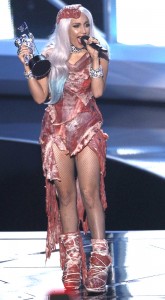In the nascent days of this blog, I penned a post on Donald Trump and the catalyst that thrust him onto the national stage. That small, but powerful gesture singlehandedly paved the way for a credible conversation about a Trump Presidential run. Do you remember what it was? I’ll remind you.
After years of neglect and municipal ineptitude surrounding the rebuilding of Central Park’s dilapidated Wollman Skating Rink, Mr. Braggadocio publicly boasted that he could re-build the rink in a few short months and under budget. Guess what? He did, and his legend was born.
For my readers in the reputation-minding biz, there’s nothing like a simple, compelling act for driving such a narrative. Countless examples abound from Sully Sullenberger’s heroic feat on the Hudson to Angelina’s Jolie’s U.N. refuge work to Tiger Woods‘ flagrant indelicato. These acts — some calculated, some from the heart and some unforeseen — all have served to indelibly define their perpetrators in the eyes of the public.
In recent years, the capacity for a single act to forever forge one’s persona has succumbed to the gushing firehose of news and information that quickly enters and exits a fickle public’s consciousness. Actions that once built lasting reputations, fueled by a media in lock-step, today get snuffed out by the natural or celebrity disaster of the day. Hence the reason for today’s post.
What level of edginess or outrageousness is required to break through today’s media clutter? And does the public (and the media that supposedly serve it) any longer decipher between good and bad when anointing celebrity status?
Take a look at Trump. Was his (and his consiglieres’) embrace of the widely discredited, but still incendiary birther platform a calculated gambit to reinvigorate his lagging public persona? As distasteful and ill-conceived as it was, it did result in boffo “Apprentice” ratings and a regular stint on Fox News. Right?
What about Charlie Sheen? If there ever was a poster boy for psycho behavior, he would be it. (Joaquin Phoenix, step aside.) Yet Sheen’s decision to socialize and publicize his craziness led to a Mark Cuban offer for his own HDTV series, a possible truce to return to CBS, and a national tour.
Of all the public personalities who’ve recognized that bad behavior can have positive results in a media culture that doesn’t distinguish, few can rival Lady Gaga. From the meat dress at the MTV Video Awards to the bizarre outfit at her sister’s high school graduation to the drunken exhibitionism at The Mets game, Ms. Gaga has profited handsomely (did I just say that?) from these outlandishly choreographed public appearances.
Most of us don’t have the pleasure (or displeasure) of working with such personalities. We’re charged with building brand esteem for more middling enterprises. Yet, we still have to compete in a media ecosystem where only the most controversial or edgy can rise above the din to create more redeeming buzz.
I’m reminded of Crispin Porter’s purposely edgy Super Bowl campaign for Groupon, which resulted in the agency’s termination, but also a boost in revenue for Crispin’s former client.
Currently we’re witnessing the CEO of GoDaddy, no stranger to concocted controversy, rapaciously defend his elephant-slaying stint caught on video. As egregious as it seems, Go Daddy has reaped millions in free exposure for its leader’s bad behavior, and may ultimately take it to the bank.
As painful as these controversies are initially, some in our line of work have (sadly) recognized that a little pain can also produce a lot of gain.




Gregory,
Thanks for your thoughtful comment. One area I didn’t delve into was the creation of content and display of certain behaviors that go viral without resorting to tastlessness. This is what our industry needs to wrap its head around. How to break through the clutter without selling the client’s soul to the devil.
Peter
Good piece, which raises some issues that beleive it or not have come up in student discussions in my Critical thinking classes — a sign that these are questions that transcend PR. So, I see three real questions here, two of which you explicitly frame.
1) What level of edginess or outrageousness is required to break through today’s media clutter?
2) And does the public (and the media that supposedly serve it) any longer decipher between good and bad when anointing celebrity status?
3) bigger, more crucial: is this sort of “bad publicity” effective in creating situations where the person receiving it can use it to promote their product, brand, prospects, etc.?
to #2, on the whole, no, they don’t distinguish, I think, in part because many of that public and the media who orient their products to them have and rely on very fuzzy notions of wrong or right, good or bad. So, “bad publicity is better than none at all” or “there’s no such thing as bad publicity” can understandable be guiding adages for them.
Now there are much more discriminating publicS — in the plural. And doing well through bad publicity with one public will very often ruin your chances with many of the others.
To #1, that depends on the public — again with the general public, you have got to have something pretty catchy, pretty attention-grabbing to beat out all the other potential stories.
as to #3, the question of effectiveness, the most interesting question. . . .well, there’s certainly cases on both sides of it, aren’t there? Certainly one can rise through bad publicity and gain a prominence in the public eye — but it can be pretty hard to break out of that negative image. It’s more likely to work when there are already other associations in the public mind — Trump is a good example here — when you’re already well-known for other features, some of which are positive.
Still, you risk being boxed in, and not being to reach the other publics you’d like to. I have a harder time taking trump seriously as a potential candidate after hearing about the birther stuff. In some areas, with some publics, that will sell. In others, he just wrote himself off as a result.
Good piece, which raises some issues that eleive it or not have come up in student discussions in my Critical thinking classes — a sign that these are questions that transcend PR. So, I see three real questions here, two of which you explicitly frame.
1) What level of edginess or outrageousness is required to break through today’s media clutter?
2) And does the public (and the media that supposedly serve it) any longer decipher between good and bad when anointing celebrity status?
3) bigger, more crucial: is this sort of “bad publicity” effective in creating situations where the person receiving it can use it to promote their product, brand, prospects, etc.?
to #2, on the whole, no, they don’t distinguish, I think, in part because many of that public and the media who orient their products to them have and rely on very fuzzy notions of wrong or right, good or bad. So, “bad publicity is better than none at all” or “there’s no such thing as bad publicity” can understandable be guiding adages for them.
Now there are much more discriminating publicS — in the plural. And doinmg well through bad publicity with one public will very often ruin your chances with many of the others.
To #1, that depands on the public — again with the general public, you have got to have something pretty catchy, pretty atrtention-grabbing to beat out all the other potential stories.
as to #3, the question of effectiveness, the most interesting question. . . .well, there’s certainly cases on both sides of it, aren’t there? Certainly one can rise through bad publicity and gain a prominence in the public eye — but it can be pretty hard to break out of that negative image. It’s more likely to work when there are already other associations in the public mind — Trump is a good example here — when you’re already well-known for other features, some of which are positive.
Still, you risk being boxed in, and not being to reach the other publics you’d like to. I have a harder time taking trump seriously as a potential candidate after hearing about the birther stuff. In some areas, with some publics, that will sell. In others, he just wrote himself off as a result.